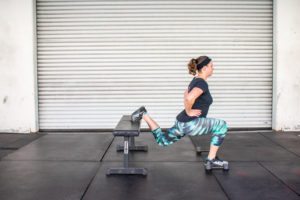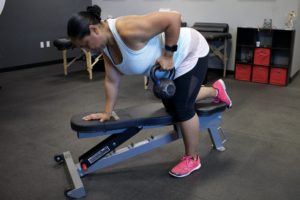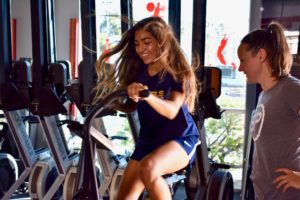Do you wake up feeling stiff, sore, or like your body just isn’t recovering the way it used to? You’re not alone. Many people accept aches and pains as part of life, but what if the real culprit is something as simple as your sleep?
In this blog, we’ll uncover how poor sleep is contributing to your pain, why recovery starts at night, and what you can do to improve your sleep for better health and performance.
How Sleep Affects Aches and Pains
Aches and pains can impact your ability to enjoy daily activities like hiking, playing sports, or even just moving comfortably throughout the day. Over time, these aches tend to worsen, leading many to seek temporary relief through physical therapy, massage, or other treatments. However, if the pain keeps coming back, there may be an underlying issue that’s often overlooked—your sleep.
Studies show that poor sleep is linked to:
- Increased risk of injuries
- More frequent and intense pain
- Slower recovery from exercise and physical activity
Think about it—if you pulled an all-nighter and hit the gym the next day, how would you feel? Exhausted, sluggish, and probably more prone to soreness and injury. That’s because sleep is when your body repairs itself.
The Role of Sleep in Recovery
When you sleep, your body isn’t just resting—it’s actively healing. During deep sleep, your body repairs muscle tissue, strengthens joints, and reduces inflammation. If you’re not getting enough quality sleep, your body doesn’t have the time it needs to recover, making you more vulnerable to aches, pains, and injuries.
While many people assume they’re getting enough rest, studies suggest we often overestimate our sleep duration. Most people function on 5-6 hours of sleep, but that doesn’t mean their bodies are fully recovering. Even if your mind feels alert after a cup of coffee, your body may still be struggling.
How to Track and Improve Your Sleep
One of the best ways to optimize your recovery is by tracking your sleep. Just as you wouldn’t start a weight loss journey without tracking your weight, you shouldn’t expect to improve your recovery without understanding your sleep patterns.
Fortunately, wearable devices make this easier than ever. Tools like Apple Watch, Fitbit, Garmin, and Oura Ring can track your sleep quality and provide data on how well you’re recovering. By monitoring your sleep trends, you can make adjustments to improve your overall health and reduce aches and pains.
Key Steps to Improve Sleep for Recovery
- Track Your Sleep: Use a wearable device to monitor sleep patterns and identify any deficiencies.
- Adjust Sleep Duration: If you’ve increased your activity level, you may need more sleep to recover properly.
- Create a Sleep Routine: Set a consistent bedtime, reduce screen time before bed, and create a restful environment.
- Listen to Your Body: If you’re feeling more achy and stiff, it could be a sign that you need more rest.
Why This Matters as You Age
As we get older, our bodies naturally become less flexible and more prone to aches and pains. Without proper recovery, this can lead to a cycle of decreased activity, muscle weakness, and overall decline in health. By prioritizing sleep, you can maintain mobility, reduce stiffness, and continue to stay active and pain-free well into your 50s, 60s, and beyond.. Your body, mind, and spirit will thank you for it!
As always, we hope this helps! For any questions and all suggestions, please email us at TeamSP@SportsPerformancePT.com
If you want to know more information about how we can help, get started with a FREE discovery phone call.
Click the following link -> DISCOVERY PHONE CALL.
If you’re interested in doing Physical Therapy at Sports Performance -> CLICK HERE TO LEARN MORE & INQUIRE
If you would like to see more from us at Sports Performance… Watch our Podcast episode 141 about How to Improve your Long Term Health and Wellness -> CLICK HERE
– Dr. Chris

STAY CONNECTED
Instagram: CLICK HERE
Facebook: CLICK HERE
YouTube: CLICK HERE
Podcast: CLICK HERE
TUNE IN TO OUR PODCAST













